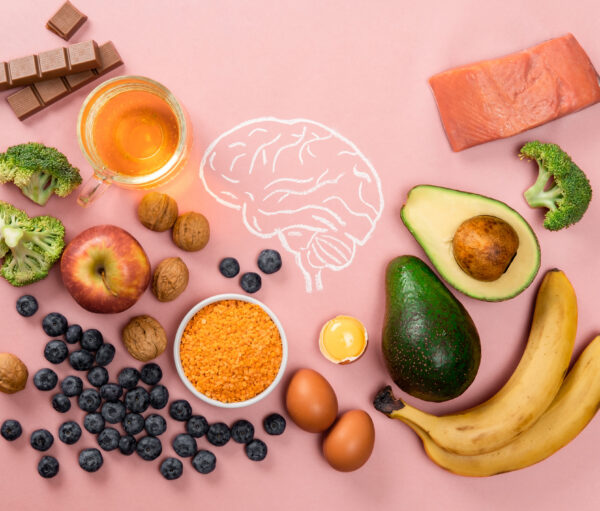Nourish Your Brain With Healthy Foods

A recent study published in Nature has added more scientific understanding to the connection between food and brain health. The food we consume influences not just our physical well-being but also cognitive function and mental health.
Researchers analyzed data from 181,990 people in the UK Biobank to unravel the links between nutrition and the brain. By analyzing participants’ diets through an online questionnaire, the researchers categorized their food preferences into 10 groups. The study assessed the relationship between these dietary patterns and a range of factors such as cognitive function, blood metabolic biomarkers, brain images, and genetics.
The results were illuminating. Participants who maintained a balanced diet were found to have better mental health, better cognitive function, and higher levels of grey matter associated with intelligence.
It’s never too late to start eating healthier, and no change is too small to begin making an impact. Here are some recommendations on dietary changes you can make to improve your brain health:
- Increase omega-3 fatty acids: Incorporate sources of omega-3s like salmon, sardines, mackerel, chia seeds, and walnuts. Omega-3s support brain structure and function.
- Eat more antioxidant-rich foods: Consume a variety of colorful fruits and vegetables rich in antioxidants, such as berries, spinach, kale, and broccoli. Antioxidants protect the brain from damaging stress.
- Prioritize whole grains: Switch to whole grains like oats, quinoa, brown rice, and whole wheat. They provide steady glucose, which the brain uses as fuel.
- Consume lean proteins: Include lean proteins like eggs, poultry, and legumes. Lean protein provides essential amino acids.
- Incorporate nuts and seeds: Snack on nuts and seeds like almonds, walnuts, flaxseed, and pumpkin seeds. They are high in healthy fats and vitamins, including vitamin E, which is linked to cognitive health.
- Boost probiotics and fiber: Eat yogurt, kefir, sauerkraut, and other fermented foods. Fiber from fruits, vegetables, and whole grains supports a healthy gut microbiome, which influences brain health.
- Reduce refined sugar and unhealthy fats: Limit added sugars found in sweets and soft drinks. Reduce trans fats and saturated fats, often present in processed foods.
- Stay hydrated: Drink plenty of water throughout the day. Proper hydration is essential for optimal brain function.
- Consider the Mediterranean or DASH diets: Both of these diets emphasize plant-based foods, lean proteins, healthy fats, and low sugar and salt, all of which support brain health.
- Drink in moderation: If you consume alcohol, do so in moderation. Excessive drinking can negatively impact cognitive function.
Implementing even a few of these changes can help improve brain function, memory, and overall cognitive health over time.
This article is not intended to replace the advice of your healthcare provider.
Source: IlluminAge


